Queen's University
Gallery
Overview
At a Glance
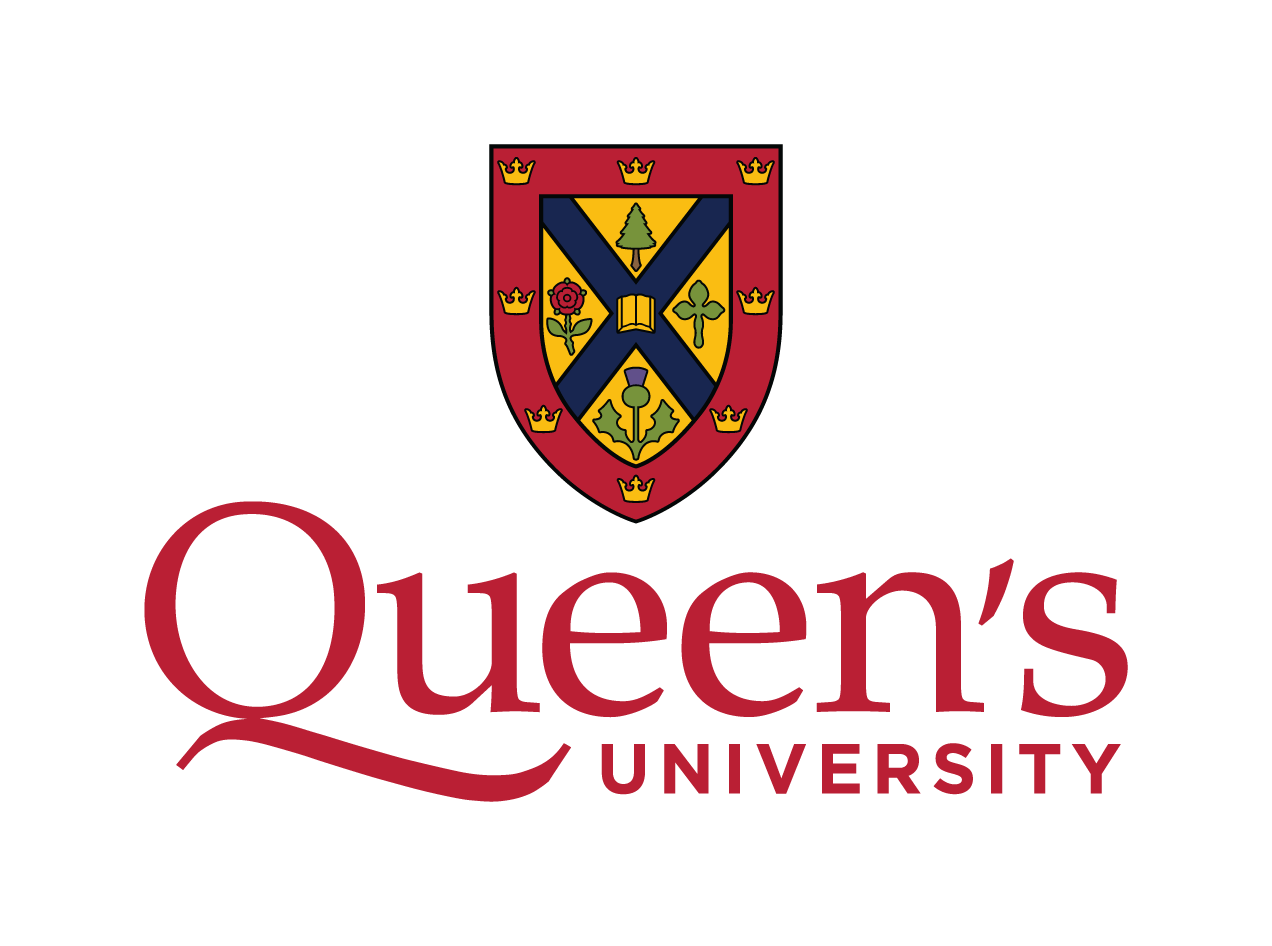
Visit Website (Opens In A New Tab)
- Urban Centre Size
- Small (under 150K)
- Number of Students
- 27697
- DLI Number
- O19376023352
- Main Campus Region
- East
- Phone
- 1-613-533-2000
- admission@queensu.ca
- Summary
Situated on traditional Anishinaabe and Haudenosaunee Territory, Queen’s University was founded in 1841. Queen’s research-intensive environment and interdisciplinary programs provide students with the comprehensive and nimble skills required in today’s competitive and evolving workforce with 91% of Queen’s grads employed within six months after graduation.
Bolstered by the outstanding reputations of its scholars and researchers — including 2015 Nobel Prize winner Arthur B. McDonald — a Queen’s education can provide unparalleled access to careers and personal development opportunities around the world. With particular academic strengths in physics, cancer research, geo-engineering, data analytics, and social sciences like surveillance studies and mental health, the university sets graduates up for excellence across disciplines.
Home to more than 24,000 students, Queen’s boasts an undergraduate graduation rate of 93%, diverse learning opportunities, a broad range of students services and supports, unmistakable school spirit, and a tight-knit global network of 159,000 alumni in 153 countries. Ultimately, to graduate from Queen’s University is to join an international community of lifelong learners and accomplished leaders.
Profile
For more than 175 years, Queen’s has attracted some of the most academically accomplished students in the world – a collection of bright minds and ambitious spirits. When you come to Queen’s, you can expect to be exposed to innovative concepts and new ways of thinking. We have a stunning limestone campus that sits on the traditional lands of the Haudenosaunee and Anishinaabe peoples, on the shores of Lake Ontario and steps from downtown Kingston .
With one of the highest graduation rates in the country at 89.2%, Queen’s students experience personal and academic success both during and after their time at Queen’s. As Canada’s definitive university experience, Queen’s challenges, supports and helps students succeed.
Learn more about our faculties, schools and departments:
Faculty of Arts and Science
Bader International Study Centre
Faculty of Education
Faculty of Engineering and Applied Science
Faculty of Health Sciences
School of Nursing
Smith School of Business
QBridge–English Language Bridging Program
School of Graduate Studies
Faculty of Law
School of Medicine
Requirements and Admissions
General Admission Requirements
- High school diploma
- Prerequisites for Queen’s academic program of choice
- Competitive admission average that includes all Queen’s prerequisites for the program
Program Requirements
Search Program Requirements
Supplementary Information
Admission at Queen’s is very competitive, and we may use Supplementary Information including the Supplementary Essay (SE), Audition, or Portfolio in addition to your academic record to help make admission decisions. Each applicant to Queen’s has a unique To-Do List, detailing exactly what we need to round out your application. Please review your To-Do List (and the due dates) in your SOLUS Student Centre. Learn more.
English Language Requirements
Applicants who meet one of the following criteria do not need to submit a test of facility in English:
- completed an IB diploma (completion of SL English B is not sufficient) or
- lived in a country where English is the acknowledged primary language for the most recent three years prior to beginning their university studies or
- attended an education institution full-time where the medium of instruction is English for the most recent three years prior to beginning their university studies
All other applicants must achieve a satisfactory score on one of the tests of facility in English listed below.
This test is a firm requirement and admission decisions cannot be made until an acceptable score has been reported. If you are in doubt about whether you meet our language requirements, submit an acceptable English language test score as soon as possible to avoid potential delays in the processing of your admission application.
Programs
View Institution Programs (Opens In A New Tab)
- Aboriginal languages, literatures and linguistics
- Applied mathematics
- Archaeology
- Astronomy and astrophysics
- Biochemistry/biophysics and molecular biology
- Biological and biomedical sciences, other
- Chemical engineering
- Civil engineering
- Classics and classical languages, literatures and linguistics
- Computer engineering
- Computer programming
- Computer science
- Drama/theatre arts and stagecraft
- Economics
- Education, general
- Electrical and electronic engineering technologies/technicians
- Engineering chemistry
- Engineering mechanics
- Engineering physics/applied physics
- English language and literature, general
- English language and literature/letters, other
- Film/video and photographic arts
- Fine arts and art studies
- French language and literature, general
- French language and literature/letters, other
- Geography and cartography
- Geological/geophysical engineering
- Health and physical education/fitness
- History
- Linguistic, comparative and related language studies and services
- Materials engineering
- Mathematics
- Mechanical engineering
- Mechatronics, robotics, and automation engineering
- Mining and mineral engineering
- Music
- Physical sciences, general
- Physics
- Political science and government
- Psychology, general
- Registered nursing, nursing administration, nursing research and clinical nursing
- Social sciences, general
- Sociology
- Statistics
- Visual and performing arts, other
- Visual, digital and performing arts, general
Student Experience
There is more to the university experience than marks and assignments. Successful students balance academics and play, study time and extracurricular activities.
At Queen’s, getting connected with your community will help you find balance and will contributed to your overall success as a student.
Looking for a way to get involved with others? Want to make a difference locally and globally? Need to recharge your batteries or just blow off some steam? There’s a group to join, someone to talk to, or a team to play with. You will also find support for your health and wellness and your living and learning environment.
This is all part of making sure you succeed. And Queen’s wants you to succeed.
Scholarships and Bursaries
At Queen’s, we recognize a university education is a major financial undertaking. All Queen’s students share the ability to excel academically, but many may not be able to fully finance their university education. Queen’s University is here to help you achieve that goal, not just now, but throughout your undergraduate studies.
- Major Admission Awards
- Admission Bursary
- Automatic Admission Scholarships
- Other Admission Awards
- Eligibility
Additional Financial Assistance
Housing
Residence is a living and learning environment where you can feel a sense of belonging, experience diverse opportunities to build resilience, and access ongoing support to help achieve academic success.
Residence Life staff provide support through peer-to-peer connections, sharing knowledge about campus resources, helping you navigate the transition to university, and planning events to build community.
- 4,500 students from 90+ countries
- 17 buildings on Main and West campuses
- Buildings vary in size, room types, and amenities
- Room types include single,single plus, double, loft double, triple, and quad
- Residence fee includes a mandatory meal plan of 19 meals per week, available at our 3 dining halls and 23 retail outlets
Contact Information
-
Undergraduate Admission and Recruitment
- Location
- Kingston, Ontario, Canada
- admission@queensu.ca
-
Campus Tours
- Location
- Kingston Campus
- tours@queensu.ca
-
Bader International Study Centre
- Location
- East Sussex, UK
- castle@queensu.ca
Profile
For more than 175 years, Queen’s has attracted some of the most academically accomplished students in the world – a collection of bright minds and ambitious spirits. When you come to Queen’s, you can expect to be exposed to innovative concepts and new ways of thinking. We have a stunning limestone campus that sits on the traditional lands of the Haudenosaunee and Anishinaabe peoples, on the shores of Lake Ontario and steps from downtown Kingston .
With one of the highest graduation rates in the country at 89.2%, Queen’s students experience personal and academic success both during and after their time at Queen’s. As Canada’s definitive university experience, Queen’s challenges, supports and helps students succeed.
Learn more about our faculties, schools and departments:
Faculty of Arts and Science
Bader International Study Centre
Faculty of Education
Faculty of Engineering and Applied Science
Faculty of Health Sciences
School of Nursing
Smith School of Business
QBridge–English Language Bridging Program
School of Graduate Studies
Faculty of Law
School of Medicine
Requirements and Admissions
General Admission Requirements
- High school diploma
- Prerequisites for Queen’s academic program of choice
- Competitive admission average that includes all Queen’s prerequisites for the program
Program Requirements
Search Program Requirements
Supplementary Information
Admission at Queen’s is very competitive, and we may use Supplementary Information including the Supplementary Essay (SE), Audition, or Portfolio in addition to your academic record to help make admission decisions. Each applicant to Queen’s has a unique To-Do List, detailing exactly what we need to round out your application. Please review your To-Do List (and the due dates) in your SOLUS Student Centre. Learn more.
English Language Requirements
Applicants who meet one of the following criteria do not need to submit a test of facility in English:
- completed an IB diploma (completion of SL English B is not sufficient) or
- lived in a country where English is the acknowledged primary language for the most recent three years prior to beginning their university studies or
- attended an education institution full-time where the medium of instruction is English for the most recent three years prior to beginning their university studies
All other applicants must achieve a satisfactory score on one of the tests of facility in English listed below.
This test is a firm requirement and admission decisions cannot be made until an acceptable score has been reported. If you are in doubt about whether you meet our language requirements, submit an acceptable English language test score as soon as possible to avoid potential delays in the processing of your admission application.
Programs
View Institution Programs (Opens In A New Tab)
- Aboriginal languages, literatures and linguistics
- Applied mathematics
- Archaeology
- Astronomy and astrophysics
- Biochemistry/biophysics and molecular biology
- Biological and biomedical sciences, other
- Chemical engineering
- Civil engineering
- Classics and classical languages, literatures and linguistics
- Computer engineering
- Computer programming
- Computer science
- Drama/theatre arts and stagecraft
- Economics
- Education, general
- Electrical and electronic engineering technologies/technicians
- Engineering chemistry
- Engineering mechanics
- Engineering physics/applied physics
- English language and literature, general
- English language and literature/letters, other
- Film/video and photographic arts
- Fine arts and art studies
- French language and literature, general
- French language and literature/letters, other
- Geography and cartography
- Geological/geophysical engineering
- Health and physical education/fitness
- History
- Linguistic, comparative and related language studies and services
- Materials engineering
- Mathematics
- Mechanical engineering
- Mechatronics, robotics, and automation engineering
- Mining and mineral engineering
- Music
- Physical sciences, general
- Physics
- Political science and government
- Psychology, general
- Registered nursing, nursing administration, nursing research and clinical nursing
- Social sciences, general
- Sociology
- Statistics
- Visual and performing arts, other
- Visual, digital and performing arts, general
Student Experience
There is more to the university experience than marks and assignments. Successful students balance academics and play, study time and extracurricular activities.
At Queen’s, getting connected with your community will help you find balance and will contributed to your overall success as a student.
Looking for a way to get involved with others? Want to make a difference locally and globally? Need to recharge your batteries or just blow off some steam? There’s a group to join, someone to talk to, or a team to play with. You will also find support for your health and wellness and your living and learning environment.
This is all part of making sure you succeed. And Queen’s wants you to succeed.
Scholarships and Bursaries
At Queen’s, we recognize a university education is a major financial undertaking. All Queen’s students share the ability to excel academically, but many may not be able to fully finance their university education. Queen’s University is here to help you achieve that goal, not just now, but throughout your undergraduate studies.
- Major Admission Awards
- Admission Bursary
- Automatic Admission Scholarships
- Other Admission Awards
- Eligibility
Additional Financial Assistance
Housing
Residence is a living and learning environment where you can feel a sense of belonging, experience diverse opportunities to build resilience, and access ongoing support to help achieve academic success.
Residence Life staff provide support through peer-to-peer connections, sharing knowledge about campus resources, helping you navigate the transition to university, and planning events to build community.
- 4,500 students from 90+ countries
- 17 buildings on Main and West campuses
- Buildings vary in size, room types, and amenities
- Room types include single,single plus, double, loft double, triple, and quad
- Residence fee includes a mandatory meal plan of 19 meals per week, available at our 3 dining halls and 23 retail outlets
Contact Information
-
Undergraduate Admission and Recruitment
- Location
- Kingston, Ontario, Canada
- admission@queensu.ca
-
Campus Tours
- Location
- Kingston Campus
- tours@queensu.ca
-
Bader International Study Centre
- Location
- East Sussex, UK
- castle@queensu.ca
Location
Student Testimonials
Read about the experiences of past international students.
-
Queen’s offers so many options and opportunities for study and extracurriculars, there’s really no shortage to what you can explore and pursue here if you keep your eyes open!
,
Have questions about admissions?
To learn more about the admissions criteria for each of our programs please contact the admissions office.

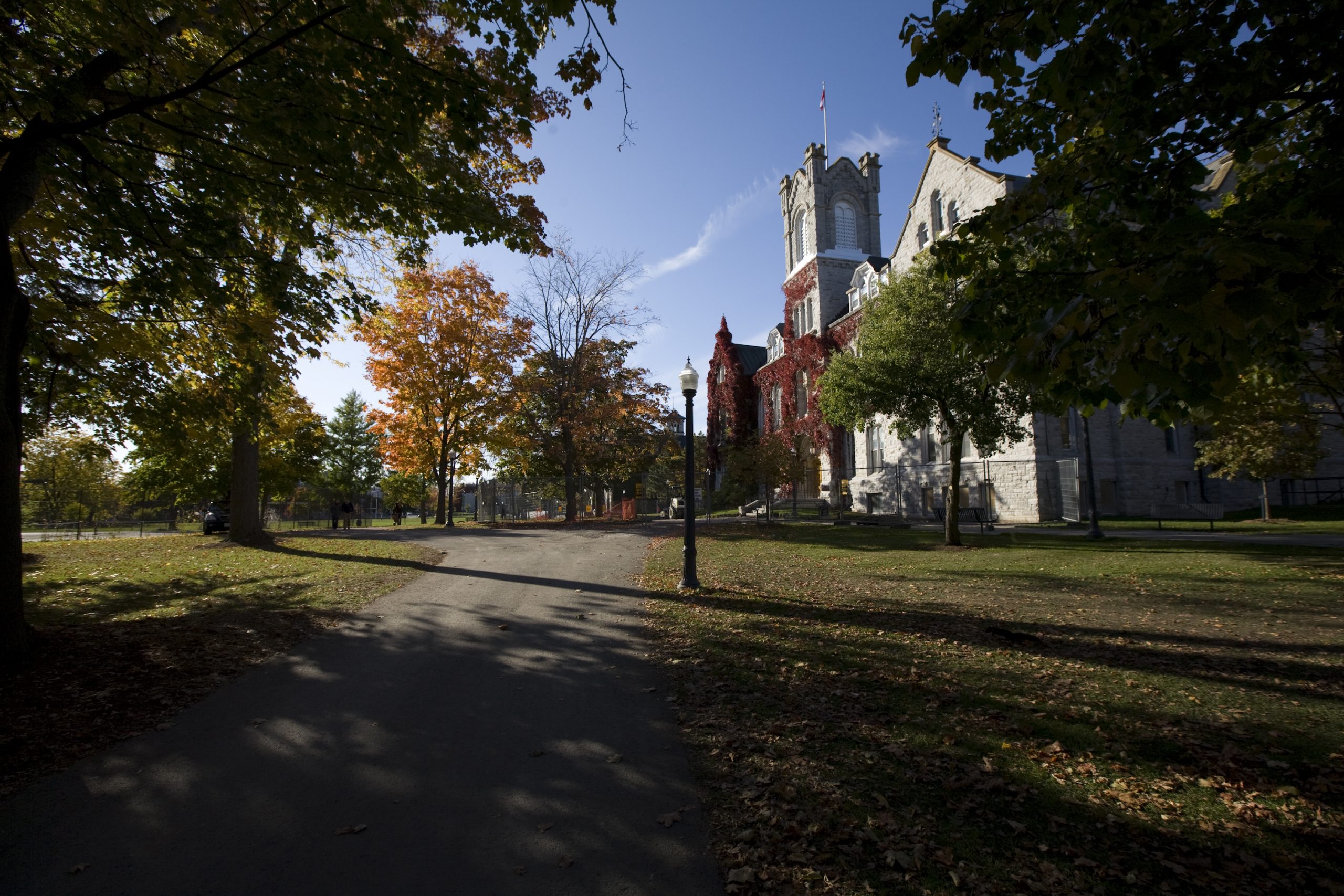
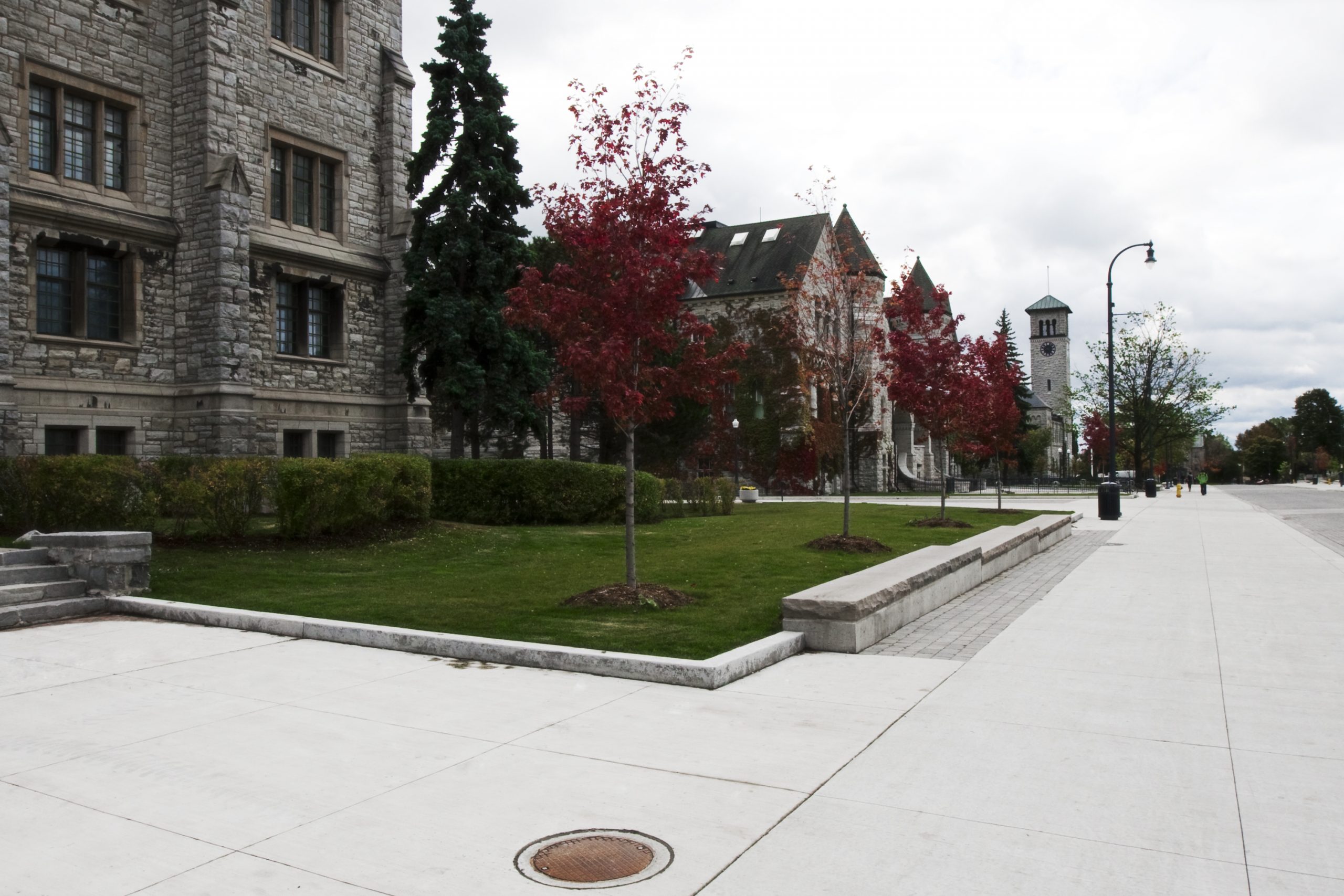
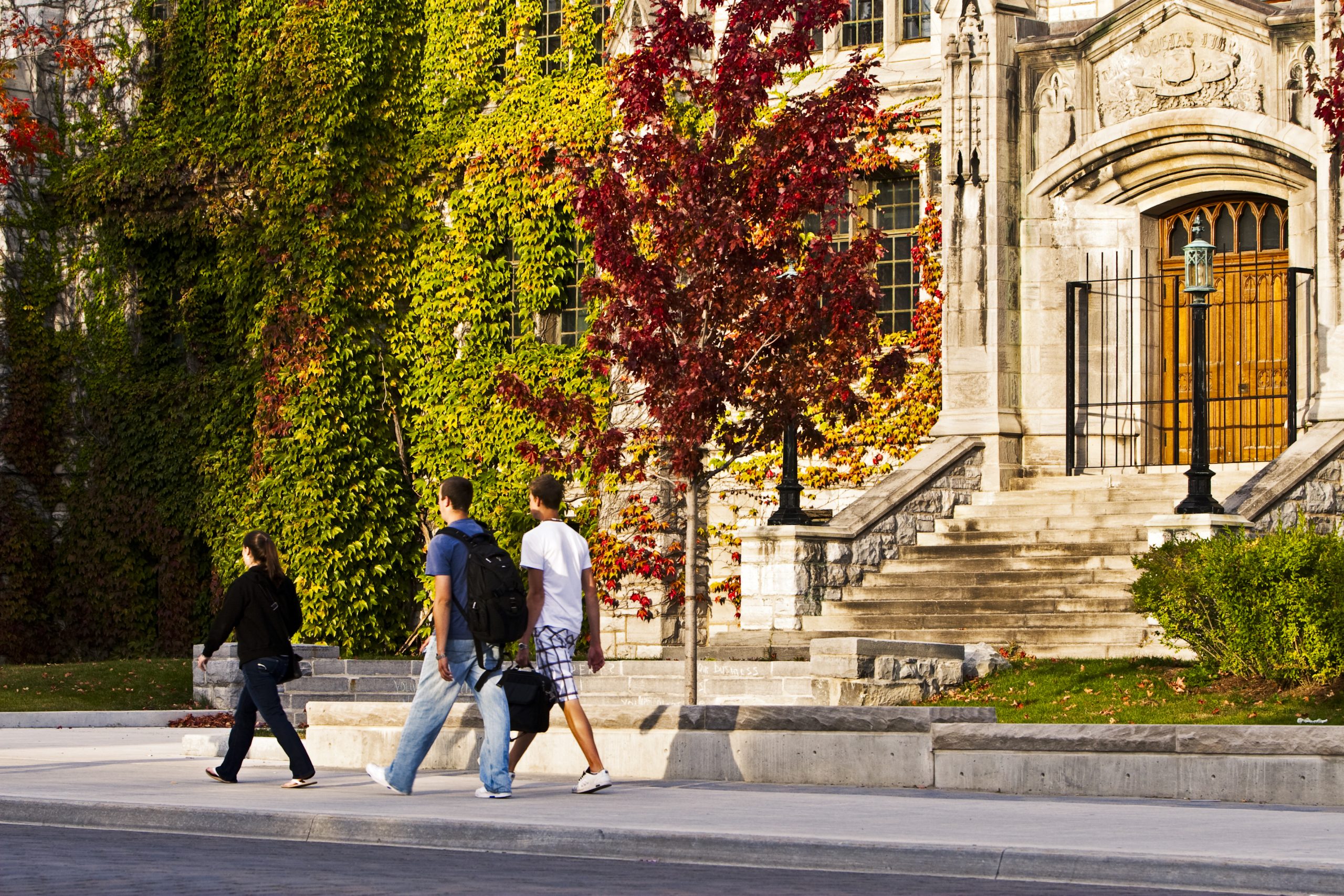
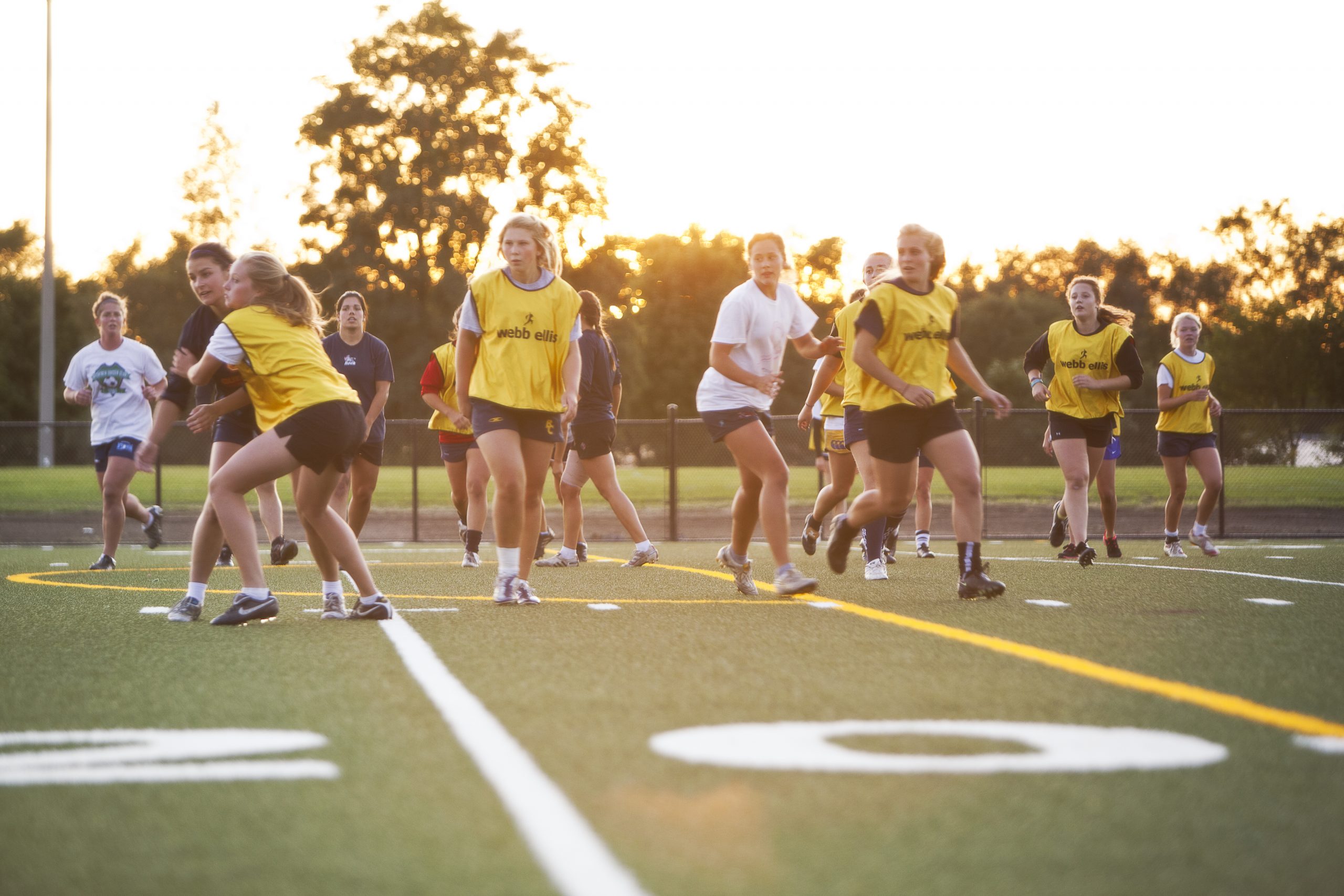
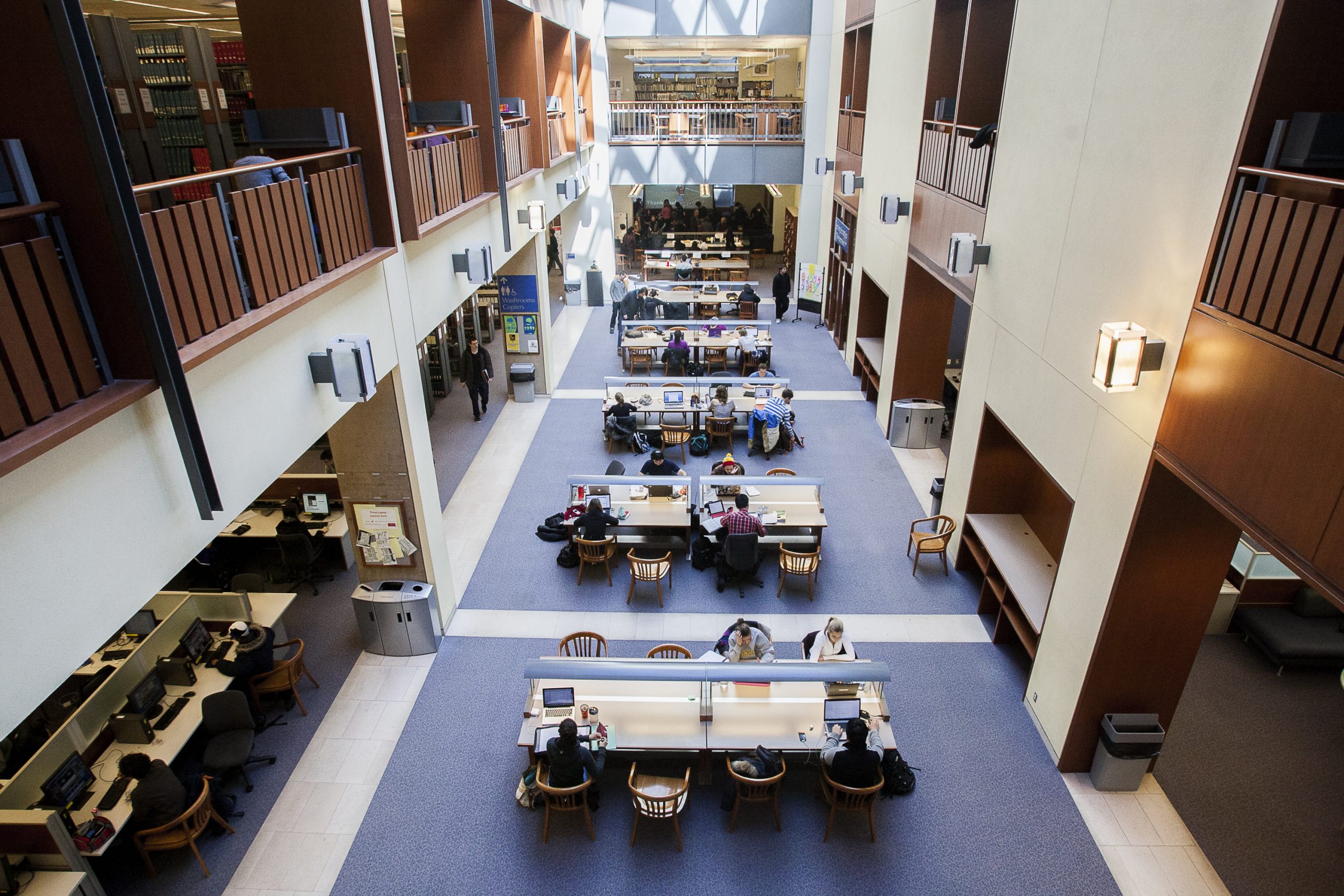
Social Media